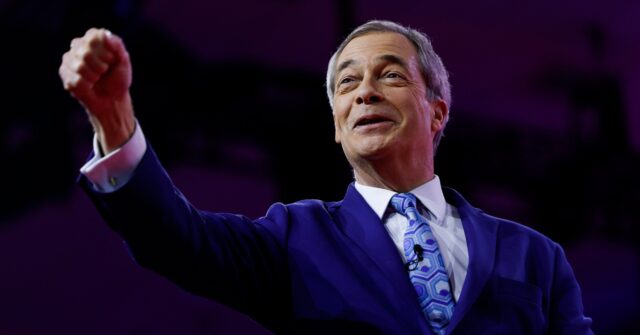In a recent interview, Nigel Farage, leader of Reform UK and prominent Brexit advocate, expressed strong confidence that Donald Trump will win the upcoming U.S. presidential election. Farage characterized the Trump campaign as vibrantly energetic compared to the opposing Harris campaign. Speaking from Pennsylvania, he articulated his belief that Trump’s strategies, particularly his focus on reducing bureaucracy and eliminating government waste, could provide a valuable model for Western nations grappling with similar issues. Farage emphasized the importance of cutting back on the “administrative state,” drawing parallels to the significant personnel changes made during Trump’s time at Twitter under Elon Musk’s leadership, hinting at potential for large-scale reforms within government agencies if Trump returns to power.
Farage’s commentary included pointed criticisms of existing bureaucracies, particularly those in the UK, which he described as “over-bureaucratised” and ineffective. He called for a comprehensive overhaul, arguing that the current systems are filled with “useless, ghastly Marxists” and likening educational institutions to “madrassas of Marxism.” His remarks reflect a belief that the necessary changes to government structures are only possible with disruptive leadership akin to what he expects Trump would deliver during a second term. According to Farage, lessons learned from Trump’s previous presidency, particularly regarding appointments and strategic planning, will enable a more effective approach to governance if he is elected again.
Contrary to some mainstream media narratives, Farage advocated for Trump’s leadership as crucial for global stability, pointing to the tumultuous geopolitical climate marked by conflicts in the Middle East, Ukraine, and rising tensions in Taiwan. He asserted that the Biden administration’s foreign policy has compounded global tensions and underscored the necessity for strong leadership—in the form of Trump—to restore order and promote peace. Farage’s sentiments were echoed in Europe, where Hungarian Prime Minister Viktor Orbán deemed Trump the only viable leader capable of negotiating peace in the ongoing Russia-Ukraine conflict.
Emphasizing the significance of the U.S.-U.K. relationship, Farage raised concerns about the current Democratic leadership’s indifference towards Britain, stating that they would rather align with the European Union’s globalist agenda. He advocated for Trump to return to the White House, positing that he would be far more favorable to forging a trade agreement with post-Brexit Britain. By promoting Trump as a “genuine friend” of the U.K., Farage articulated a vision of renewed partnership and cooperation that counters what he perceives as a growing disconnect fostered by the current U.S. administration.
The vision Farage outlines hinges on significant alterations to the current political landscape, with reductions in bureaucracy seen as a means of liberating governmental capacities to act more decisively and effectively. His endorsement of Trump goes beyond mere political alignment; it represents an ideological commitment to a form of governance that prioritizes efficiency, personal liberty, and national sovereignty over collectivist tendencies he associates with the left. Farage’s rhetoric implies a belief in an inevitable and necessary shift towards these principles, which he hopes will resonate with voters on both sides of the Atlantic in light of longstanding grievances with the status quo.
As the U.S. presidential election draws nearer, Farage’s predictions and proposed reforms resonate within broader global discussions regarding governance, peace, and international relations. His support for Trump signals a desire for a return to policies that prioritize national interests and advocate for less governmental intervention in bureaucratic processes. This perspective not only frames the upcoming electoral contest as a pivotal moment for the U.S. but also suggests a broader ideological battle concerning the future relationships among Western powers, especially post-Brexit Britain, and their stance toward an emerging multipolar world order that challenges traditional norms.

